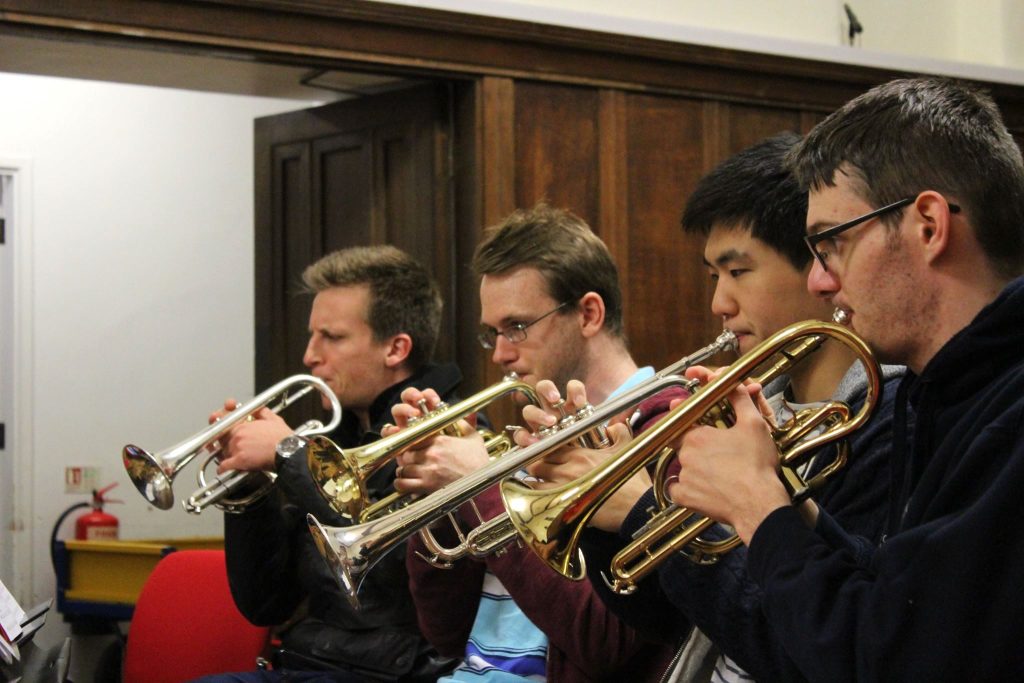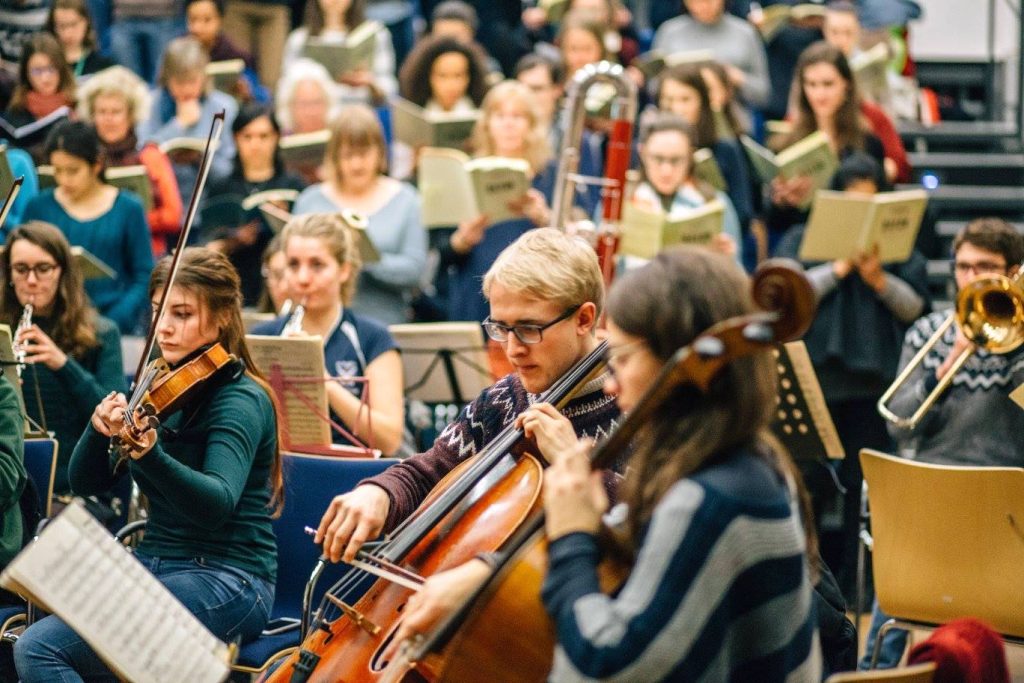At the end of March 2021, reports appeared that the University of Oxford had recognized musical notation as racist and wanted to reform musical literacy and abandon the study of the classical repertoire. We figured out whether they admitted it and whether they really wanted it.
On March 27, a series of publications on this topic in the British media was opened by an article in The Telegraph, entitled: "Oxford professor calls music notation 'colonialist' and wants to 'decolonize' curriculum". They talked about it in Russia "Ren-TV", "Komsomolskaya Pravda", "Tsargrad", "Vesti FM" and other media. In Russian media reports, there are two main statements: firstly, at Oxford, musical notation was recognized as racist, and secondly, the university will now revise the classical repertoire, or even abandon it altogether.
What did The Telegraph say?
The publication's correspondent, Craig Simpson, examined proposals for changing the curriculum made by one of the members of the Faculty of Music at Oxford University during a discussion. The names and positions of the participants are not indicated in the text. There is also no mention of the name or date of the event within which this conversation took place and was recorded. From the context, it can be understood that the meeting was dedicated to changes in the curriculum for undergraduate students.
“The documents show that one of the faculty members responsible for the curriculum proposed reforms aimed at combating white hegemony, including rethinking the study of musical notation because it is a representation of colonialism. Teaching music notation that "has not shaken off its ties to the colonial past" may be a "slap in the face" for some students, the documents say. It is proposed to rebrand music composition courses to make them more inclusive.", — writes Simpson.
The article goes on to describe other proposals, such as: "Remove certain skills, such as keyboarding and conducting, as their repertoire is 'structurally biased toward white European music,' which could cause 'great distress' for students of other backgrounds." “Professors questioned whether the structure of the department’s curriculum supported white supremacy,” the article said. Whether this was all said by the same professor or there were several of them is again not clear from the text.
As a solution, it was proposed (by whom - again not specified) to rename some sections and replace the topics devoted to the last decade of Schubert and the medieval French composer Guillaume de Machaut with others, such as “Music of Africa and the African Diaspora,” “Global Music,” and “Popular Music.” According to the journalist, the documents say that not all participants in the discussion agreed with the proposals and with a similar approach. One noted that teachers of pre-1900 music are often indirectly accused of focusing on "white" and Western music. At the meeting, disagreements also arose regarding the modern term “Western art music,” which is proposed to replace the expression “classical music.”
After listing the topics of discussion, there is a comment from the leadership, which states that the department has indeed been planning to make changes to the curriculum over the past couple of years and that they will be published in the summer, once they receive university approval. According to a faculty representative, the faculty does plan to include more non-Western and popular music in the program, but in no way to the detriment of the traditional program. “While maintaining (and in no way weakening) our mastery of the critical analysis, history, and performance of a wide variety of Western classical music, we are seeking ways to provide our students with more opportunities to study non-Western and popular music than currently exist,” the commentary states.

What say representatives of the faculty and university?
On March 31, four days after the article in The Telegraph, the same commentary was expanded and supplemented appeared on the faculty website - obviously as a response to a discussion in the media. It again states that the teaching of Western classical music will be maintained at the same level (the names of Machaut, Mozart and Beethoven are listed as examples, so at least three of them are definitely not in danger of being canceled).
Some existing disciplines will be updated. For example, “Composition Techniques” (harmony and counterpoint) will be supplemented by arrangement and transcription of music and will include both Western classical, popular and non-Western options. The faculty also announced the recent appointment of an associate professor of popular music, which will help expand the curriculum with related courses, while all other staff will teach the same courses as before. Already existing courses, the faculty recalled, include such disciplines as “Global Hip-Hop,” “World Jazz,” and “Women in Popular Music.”
The university’s statement does not say that the music symbols are colonialist, racist, or anything else.
A day earlier, on March 30, the AP contacted the head of communications at the University of Oxford, Stephen Rose, who confirmed, that the faculty does indeed plan to expand the curriculum, but the exclusion of musical notation is not included in these plans. Rose also said that the views and statements that The Telegraph attributed to certain "professors" were essentially the views and statements of one person.

Therefore, the University of Oxford Department of Music has no plans to abandon notation and has made no claims that it is a colonialist or racist sign system. This appears to be the private opinion of one of the employees, expressed during a discussion of the curriculum, and then anonymously appearing in the media. The faculty also does not refuse to teach Western classical music, as it reported to The Telegraph correspondent and on its website. This position was also confirmed by the head of communications at the University of Oxford.
Photo: Oxford University Music Society
Mostly not true
- Is it true that because of the fight against racism in US schools, they no longer require correct solutions in math lessons?
- https://apnews.com/article/fact-checking-afs:Content:9947592002
If you find a spelling or grammatical error, please let us know by highlighting the error text and clicking Ctrl+Enter.







